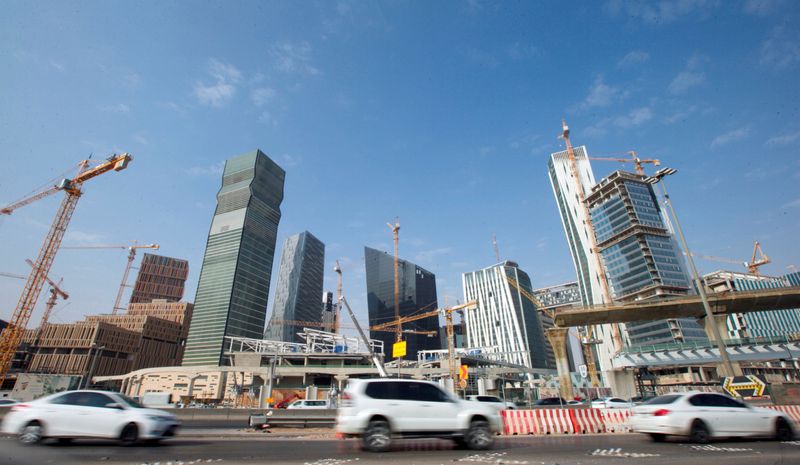DUBAI (Reuters) - Saudi Arabia's consumer price index rose 0.4% in January from a year earlier, official data showed on Tuesday, the second consecutive month of positive inflation after it was in negative territory for most of last year.
Hikes in prices at restaurants and hotels, education, and healthcare, boosted the index, data from the General Authority for Statistics showed.
Prices for food and beverages, which account for nearly 20% of the index basket, rose 2.2%, while prices for housing and utilities, which account for around 25% of the basket, decreased 3.3% - a lower deflationary pace than in previous months.
"This appears to reflect the recent bottoming out in the property market, which is feeding through into rents declining at a slower pace," Jason Tuvey, senior emerging markets economist at Capital Economics said in a note.
Prices receded in Saudi Arabia last year after rising in 2018 on the back of the introduction of a value added tax.
But higher government spending and an easing of austerity measures have given a boost to economic activity, which has recently started to translate into positive inflation, economists have said.
Saudi Arabia remains dominated by hydrocarbon revenues despite Crown Prince Mohammed bin Salman's plans to diversify it. The economy grew a mere 0.4% last year, according to government forecasts, mainly because of a slowdown in its oil sector.

Tuvey said headline inflation could rise this year after Saudi oil giant Aramco (SE:2222) increased gasoline prices this month.